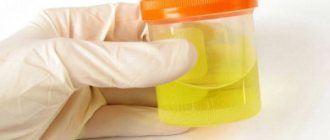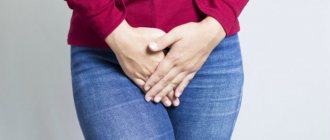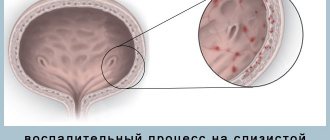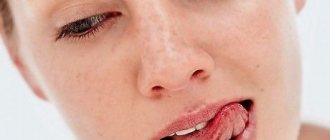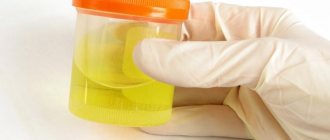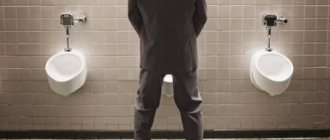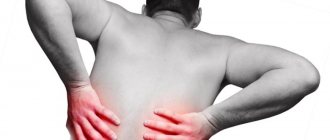Video on the topic
What are the causes of burning and painful sensations when urinating, how to relieve the burning sensation and what tests to take to find the cause and cure, says a venereologist, a urologist of the highest category with 17 years of experience:
Pain at the end of urination is an alarming symptom that indicates the presence of a serious illness. It is important to know all the possible causes of pain in order to choose the right treatment to get rid of the problem.
Cystitis is a disease that often occurs in women of different ages. Its main symptom is pain when urinating. The cause of this disease is inflammation in the bladder area. It begins due to bacteria that penetrate the urethra and begin to actively multiply. Most often, this problem occurs in women who do not follow the rules of personal hygiene. Another possible reason for the development of cystitis is hypothermia. It is enough to sit on a cold stone step to feel the first symptoms of the disease by the evening.
With cystitis, in addition to pain when urinating, women may have a fever. In this case, the patient will constantly be tormented by a burning sensation in the urethra. Pain in the lower abdomen may appear. Urination will become more frequent. With cystitis, blood clots can be found in the urine.
Urethritis is another disease that will make it painful for a woman to pee. How does this disease differ from cystitis? With urethritis, inflammation begins not in the bladder, but in the urethra.
In pregnant women, pain at the end of urination sometimes occurs because the uterus puts pressure on the bladder. A similar symptom that appears after childbirth may indicate that the urethra is damaged.
Due to a genital infection, inflammation develops in the vagina. Then the woman will also experience pain when urinating. The cause of this disease can be unprotected sexual intercourse, weakened immunity, or hormonal imbalance. To determine exactly why a girl is faced with a similar problem, she needs to see a doctor and get tested.
Pain may occur due to urolithiasis. The urethra is damaged by stones, so a burning sensation will occur. Blood may appear in the urine. Another important symptom of this disease is renal colic. They occur when a stone passes through the ureter.
Wearing tight underwear can also cause burning and pain in the urethra. We must not forget about allergic reactions that may occur to shower gel or personal hygiene products.
It is important to know all the causes of such symptoms. It’s worth getting tested because several factors can trigger the disease. A urologist and gynecologist will be able to accurately diagnose. It is important not to ignore the symptoms, because getting rid of chronic diseases will be very difficult.
It hurts to pee during pregnancy
During this period of life, women often notice that as pregnancy progresses, various problems with urination may appear: the urge to urinate becomes more frequent, and the process itself may become painful. Such pain is called physiological when, as a result of an increase in the size of the uterus, pressure on the bladder increases.
But it is possible that during any week of carrying a baby, a pregnant woman may experience an aggravation of existing diseases of the genitourinary system (chronic cystitis, urethritis, urolithiasis, sexually transmitted diseases) or develop new ones, which is associated with the natural vulnerability of the vaginal microflora and a decrease in general and local immunity. Therefore, if any discomfort occurs when urinating, you need to consult with specialists and establish their true cause in order to be able to undergo treatment in time and prevent dangerous complications from developing.
Causes of pain in men
What diseases cause pain at the end of urination in men? Groin pain may be a sign of prostatitis. Most often, this disease develops in those who lead a sedentary lifestyle or have chronic diseases. Long-term sexual abstinence can also provoke the disease. Prostatitis is a disease in which the prostate gland becomes inflamed in men. The patient will feel a burning sensation and pain during and after urination. If you ignore the symptoms, the discomfort will intensify and will haunt you constantly.
Cystitis in men is extremely rare, but urethritis can cause pain. Due to this disease, the urethra becomes inflamed. In addition to pain and burning, the patient may be bothered by discharge in the morning.
Sexual infections also cause pain at the end of urination in men. At the same time, other alarming symptoms often appear. For example, the opening of the urethra may become swollen and red. This symptom is characteristic of gonorrhea. Purulent discharge is also possible. They are present in the urine of those who have trichomoniasis.
In men, as in women, pain can occur due to urolithiasis. In such a situation, the patient will complain of pain in the lower abdomen and blood in the urine.
Pain when urinating at the beginning
If urination is characterized by severe pain at the beginning of urine output, this indicates the presence of infectious, purulent and fungal diseases that are sexually transmitted. These include: candidiasis, gonorrhea, chlamydia.
Painful sensations become more pronounced when the accumulated pus from the cavity of the urethra moves sharply through the genital organ under the pressure of urine.
With candidiasis, there is itching and burning before the onset of release, then the pain subsides, but discomfort and discomfort remain.
A prostate tumor is accompanied by constant pain.
Treatment of diseases
When choosing treatment, it is important to consider the causes of the disease. To accurately determine them, you need to visit a urologist. Girls can also contact a gynecologist. The doctor will order tests and prescribe treatment. What remedies help with diseases that cause pain at the end of urination?
For cystitis and urethritis, a specialist will prescribe antibiotics that will destroy the infection. Monural is very effective. This drug has an important advantage: it can be taken during pregnancy. Furadonin or Furagin are often prescribed, which quickly relieve the symptoms of the disease. To boost your immunity, you should take a course of vitamins immediately after treatment or during it.
If the pain was a symptom of urolithiasis, then it is necessary to remove the stones. There are 2 methods:
- ultrasonic crushing;
- surgical intervention.
The patient will be prescribed a special diet. He will have to reduce his consumption of chocolate, legumes, cottage cheese, cheese, and milk. It is necessary to exclude coffee, alcohol and fatty foods from the diet, and drink plenty of liquids, for example, mineral water or dried fruit compote.
Doctors often prescribe various herbs. Kidney tea is effective not only for kidney diseases, but also for cystitis. It normalizes the general condition and has a negative effect on pathogens.
Treatment of prostatitis involves antibacterial therapy. If the disease is advanced, a purulent abscess may begin. In this case, urgent hospitalization is necessary. For chronic prostatitis, the patient will be prescribed a massage that improves blood circulation.
The cause of pain may be a tumor that interferes with the flow of urine. It is impossible to do without surgical intervention for this disease. Chemotherapy may be required.
Treatment must be prescribed by a doctor. It is important to consider the cause of the disease. Drugs must be selected individually for each case. If you ignore pain, there may be complications, one of which is urinary incontinence. Prostatitis often causes problems with erection, and sexually transmitted infections, if not treated promptly, can lead to infertility.
Traditional methods
Traditional medicine has many remedies that help get rid of pain. For cystitis and urethritis, you can use the following recipes:
- Linden infusion. At 2 tbsp. l. dry flowers, take 2 cups of boiling water. The product should be infused for 30 minutes. Drink 250 ml in the evening.
- Infusion of cornflowers. 1 tsp. raw materials should be poured with 250 ml of boiling water, leave for 1 hour, drink 2 tbsp before meals. l.
- Currant infusion. 3 tbsp. l. dry black currant leaves pour 0.5 liters of boiling water. Take the product 3 times a day.
Separately, it is worth mentioning fruit drinks made from cranberries or lingonberries. If you drink them in large quantities, they will relieve pain and significantly improve your condition. If you have cystitis, it is important to stay warm. This also helps relieve pain. It is worth observing bed rest, applying a heating pad to your stomach or wrapping yourself in a blanket.
There are recipes that help with urolithiasis:
- Take potato skins, wash them and cook for 30 minutes. Strain the resulting product and take 3 times a day. 1 serving – 150 ml.
- Squeeze juice from beets, cucumbers and carrots. Drink the resulting mixture 4 times a day, 150 ml.
- Chop the parsley root, pour 1 liter of boiling water and cook over low heat for 30 minutes. Take this remedy 5 times a day, 100 ml.
If you have urolithiasis, you can drink lemon juice diluted with water.
If the pain is due to a sexually transmitted infection, aloe juice will help. You need to drink 1 tsp. of this remedy 3 times a day 30 minutes before meals. You can also treat yourself with garlic juice. You should also drink it 3 times a day, but 0.5 tsp, because it can burn the gastric mucosa. It is best for people with gastrointestinal problems to avoid eating garlic.
A man suffering from prostatitis should pay attention to the following recipes:
- At 2 tbsp. l. Asparagus root take 1 liter of boiling water. You need to infuse this remedy for 30 minutes. Must be taken 3 times a day. One serving - 150 ml. This infusion effectively relieves pain and alleviates the general condition.
- At 2 tbsp. l. tansy, take 300 ml of vodka. Take 10 drops of this remedy 2 times a day.
- To relieve inflammation, you should drink a decoction of arnica: 2 tbsp. l. raw materials 1 liter of boiling water.
This treatment will help relieve pain and reduce inflammation, but you should first consult with a specialist to accurately determine the cause of the symptoms and the exact dosage of the medications.
Treatment of pain when urinating
Diagnostic measures include a preliminary examination by a doctor, medical history and some instrumental studies:
- General urine analysis;
- General biochemical blood test;
- Ultrasound of the kidneys, urinary system, prostate;
- A smear from the urethra to determine the cause of the pathology.
Important! A smear is a mandatory procedure required to determine the level of sensitivity of the infectious agent to antibacterial agents and medications.
Anamnesis collection includes the following procedures:
- Suddenness and intensity of pain. A sharp acute symptom indicates the presence of stones, and mild pain may indicate malignant tumors.
- Localization. Pain in the head – urolithiasis, groin – prostate gland, pain in the side or lower back – infection.
- A period of time. It is important to determine whether it hurts to urinate at the beginning (cystitis), during the process (prostatitis) or at the end (oncology).
- Urging frequency. The indicator will help determine the exact cause: with some diseases, the desire to urinate occurs much less frequently, and the volume of excretion remains the same. With other deviations, the number of urges may increase, but the volume of urine released may decrease.
- The presence of foreign secretions, their color and smell. When organs are damaged, purulent, mucous, and bloody discharge is observed.
Treatment can be either traditional or conservative. But appointments are made only by the attending doctor. It is strictly forbidden to start self-medication without first consulting a doctor. What this can lead to:
- Worsening of the disease;
- Disruption of urine outflow when questionable drugs are introduced into the canal;
- Irreversible changes in organ function due to the use of antibacterial therapy.
Traditional methods of treatment
If writing hurts, and the doctor has not confirmed the infection, you can use baths and infusions. The traditional method of treatment offers the following options:
- Chamomile can be used for baths and washes. Baths are made from 1 tbsp. l. collection for 1 tbsp. boiling water (leave for 15 minutes and add to the bath) - treatment daily for 14 days. Washing is carried out several times a day with an infusion of 2 tbsp. l. collection per 1 liter of water: boil, strain, cool.
- St. John's wort herb is steamed in the amount of 1 tbsp. l. for 1 tbsp. boiling water (boil for 15 minutes), strain, cool and drink 50 ml three times.
- Fresh parsley herb is infused for 10 hours in the proportions of 1 tbsp. l. chopped grass in 0.5 liters of cold water. Drink like water throughout the day in small portions.
Important! Traditional recipes are not a harmless medicine for treatment. Herbs have a powerful diuretic and anti-inflammatory effect. Therefore, they can provoke the release of stones, sand, and a strong outflow of secretions. If the cause of the pathology is not clear, therapy will only worsen the clinical picture of the disease.
Medications
If the urethra and urethra hurt, the doctor finds out why the disease appeared and only then prescribes treatment. Taking painkillers and stopping attacks is the wrong decision. At the slightest sign of discharge, swelling and redness, you need to go to a urologist. Therapy includes the following groups of drugs:
- Antimicrobial agents, antibiotics - if a bacterial infection is proven;
- Painkillers;
- Antifungal medications;
- Immunomodulators that increase the body's resistance.
During therapy, it is recommended to follow the prescribed drinking regime and protect yourself from colds and other diseases. The prescribed diet therapy limits the consumption of alcohol, fatty, spicy, salty foods, canned food and smoked meats. All meals lead to changes in the composition of urine, which increases the load on the organs and negatively affects the patient’s condition. In particularly difficult cases, for example, if sand begins to leak, stones pass, or a malignant tumor is discovered, surgical intervention is required.
Prevention
Don't forget about disease prevention. It is necessary to lead a healthy lifestyle, eat regularly and maintain a daily routine. We'll have to reconsider the diet. It is necessary to exclude alcohol and dishes with a lot of spices from it. It is worth limiting your consumption of sweets.
You need to empty your bladder on time. Both men and women must follow this rule. It is also necessary to drink a lot during the day so that pathogenic microorganisms and their metabolic products are washed out along with the liquid. Fruit drinks, compotes and mineral water are especially useful. Don't overuse coffee.
Hypothermia must not be allowed. Women must follow this rule from childhood. It is important to always dress for the weather. In winter, sweaters and trousers should be preferred. You should not sit on cold steps or stone slabs.
It is very important to observe the rules of personal hygiene. A girl should take a shower and change her underwear every day. Before and after sexual intercourse, you should empty your bladder. We must not forget about using condoms. They are especially necessary if a woman often changes sexual partners. By protecting herself, she will protect herself from infections that can cause pain.
It can be painful for a woman to pee for a variety of reasons. Each plays an important role during the diagnostic study. The sooner the diagnosis is made, the faster the unpleasant symptoms can be relieved.
A woman experiences pain during the process of emptying the bladder. Over time, the problem begins to progress and the pain intensifies. This undesirable condition occurs in women and men, but in the female body it is somewhat more common.
At the end of urination, unpleasant sensations may appear, which will be confirmed by the ongoing inflammatory process in the area of the bladder and the urethra itself.
The development of pain occurs on the basis of 3 mechanisms, which are divided into 3 main groups:
- Ongoing inflammatory process in the urethra and bladder. Pain occurs at the end of a bowel movement as the bladder muscles begin to contract.
- The reason that causes pain is sand or kidney stones. The mucous membrane does not undergo changes, but formations in the kidneys can irritate the walls, thereby injuring the urethra, causing discomfort and discomfort.
- If no impurities are observed in the urine, then. most likely, the rate of urine outflow changes. There are factors that cause the urethra to narrow, and as a result, the bladder muscles need more strength to contract.
Why does it hurt to write at the end?
If pain appears at the end of urination, accompanied by a burning sensation and a feeling of insufficient emptying of the bladder, it is most likely that the woman has developed acute cystitis or urethritis. In more severe cases, combined inflammation of the urinary tract is noted. If these inflammatory diseases are not treated in time, painful urination may be accompanied by urinary incontinence.
Pain after a woman pees may be due to the presence of sand in the urine due to urolithiasis. During the process of emptying, sand irritates the urethra, which is why the woman feels pain at the end of urination.
Etiology of the disease
If it hurts to pee at the end of urination, then one of the main reasons is considered to be ongoing infectious processes, which manifest themselves in the form of disturbances in the structure of the mucous membranes of the urethra and the bladder itself. The patient exhibits swelling, increased sensitivity and hyperemia. Blood begins to actively flow to certain areas.
One of the most common diseases that causes pain is cystitis. It causes inflammation not only of the mucous membrane of the bladder, but also of the walls themselves.
Favorable conditions are created for the development of pathogenic flora and various bacteria, such as staphylococci, chlamydia, E. coli, etc.
The main symptoms are pain in the lower abdomen and constant pain. It is permanent and manifests itself both at the beginning and at the end of the process itself. The degree of expression of pain and the frequency of urges depend on the strength of the ongoing inflammatory process.
The urine becomes cloudy. If proper treatment is not provided, then over time blood inclusions can be found in the urine, and the frequency of urges increases noticeably.
In some clinical cases, there may be an increase in body temperature, decreased activity, and increased sweating. If there is an inflammatory process, the bladder muscles begin to contract much more strongly. When the amount of accumulated urine is minimal, the desire to visit the restroom arises.
The disease becomes chronic over time. Periods of exacerbation may vary, but the severity is somewhat lower. Remission is characterized by the absence of primary symptoms.
With urethritis, an inflammatory process occurs in the urethra itself (urethra). The causes that cause the disease are identical to cystitis.
The above diseases can complement each other. Infection can spread from the inflamed bladder to the urethra and vice versa. Pain syndrome is a natural consequence of the process.
Diagnosis and treatment of neoplasms
With neoplasms, complaints may be absent for a long time. Painful trips to the toilet in small ways are observed only in cases where the tumor has reached a large size or is localized near the urethra and ureter. Patients also complain of the appearance of, and. Objective research is uninformative. Only pain in the suprapubic region is detected.
To diagnose bladder tumors, in addition to a general clinical analysis of blood and urine, the following is prescribed:
- Ultrasound of the bladder;
- Bladder cystoscopy with biopsy (if the tumor is localized in the bladder);
- with biopsy (if the tumor is localized in the urethra);
- MRI or ;
- Excretory urography.
The most effective treatment method is surgery
. The modern method is transurethral resection of the bladder. In case of cancer, the BCG vaccine can also be injected into the tumor (if the person does not have tuberculosis), which significantly slows down the growth and development of the malignant process. After removal of the tumor, a course of chemotherapy and radiation therapy is indicated. Patients with benign tumors after removal must take immunostimulants and regularly visit a urologist to prevent relapses.
Formation of stones and sand in the body
Why does it hurt to write when you have urolithiasis? The mucous membrane does not become inflamed, however, the urine contains various suspended formations (stones/sand). Their size varies, and you can often find a combination of different elements.
Pain when urinating does not appear immediately. At the initial stage, the patient experiences renal colic, which varies in intensity and manifestation. The stone begins to move along the ureter and thereby cause pain in the lumbar region.
Sharp edges can damage the mucosal walls and cause blood to enter the urine. Such colic can be stopped through the use of special antispasmodics. They allow you to expand the walls and facilitate the exit of stone formations.
The mucous membrane does not undergo inflammation, and the qualitative composition does not change, what is the cause of the pain? The result is an increase in the number and strength of contractions. Pain syndrome occurs when the flow of urine is blocked. This condition is observed in a number of diseases:
- Tumors in the bladder that block the exit.
- Post-traumatic pain that occurs as a result of damage to the integrity of the organ itself. The reasons that cause this condition are trauma, wounds, etc.
Urolithiasis disease
Urolithiasis, or urolithiasis, is characterized by the presence of stones in any of the organs of the genitourinary system. This disease affects people of any gender and age, from children to old people. If stones have formed in the bladder, patients may complain of pain when urinating or moving, radiating to the genitals and perineal area.
Characteristic of urolithiasis is also an excessively frequent need to empty the bladder, which spontaneously arises during physical exertion, walking, and shaking. During deurination, the stream may suddenly dry up (without the feeling of complete emptying of the bladder), and resume only after the person’s body takes a different position - the so-called. "stuffing syndrome".
Pathological manifestations
During diagnosis, a preliminary clinical picture can be established based on the type and nature of the pain present.
There are many reasons, and each deserves detailed consideration:
- Acute pain that occurs when urinating. There is also a feeling of pronounced burning sensation and incomplete evacuation, which can intensify. In this case, it is advisable to talk about the ongoing inflammatory process in the form of cystitis and urethritis.
- The opposite case is nagging pain, which differs in intensity. They have a strong manifestation, which is observed throughout the entire time of emptying. Such symptoms occur in a number of diseases: cystitis, urethritis, etc. The nature of the manifestations varies, the duration is about 5-6 months.
Unpleasant sensations and discomfort in the female body manifest themselves in the form of a burning sensation, which signals ongoing cystitis or urethritis. As a rule, the combination of these diseases leads to a deterioration in the general condition.
Such diseases are often accompanied by urinary incontinence, which is then difficult to correct.
Pain is a natural physiological manifestation that occurs as a result of pregnancy. The uterus begins to enlarge, and the degree of pressure on the bladder increases noticeably. This process occurs with the addition of various infections that aggravate the current condition.
During the postpartum period, pain is a serious reason for conducting a diagnostic study. The likelihood of urethral rupture is high at the time of childbirth.
A child's body is significantly different from an adult's. Many processes occurring in it occur with greater intensity. In addition to the symptoms of cystitis or urethritis, you can experience a general deterioration in your condition: increased body temperature, decreased activity, etc.
Each organism is unique, and the course of many diseases depends on a number of factors. Painful sensations are caused by mechanical irritation of the urethra and detected vaginal infections. With interstitial cystitis, it is impossible to establish exact symptoms. The bladder becomes inflamed when a pathogenic infection occurs.
The quality of urine deserves special attention. If there are impurities in it, you should immediately seek help from your doctor. If primary symptoms are detected, you should seek help from your doctor. Self-treatment and self-diagnosis only worsen the current situation. A correct diagnosis is the key to a quick recovery.
Have you ever had this happen - you’re scared to even go to the toilet, and all because it’s very painful to pee at the end of urination? And I often want to empty my bowels. All this causes such severe discomfort that a person is simply exhausted. Let's try to find the cause of such a symptom and a solution to this delicate problem.
Dramatic ending: pain after emptying the bladder
Urological problems are one of the most common reasons why patients of both sexes consult a doctor. They often complain that it hurts to pee at the end of urination. This symptom should alert you because it may be associated with serious illnesses. Only after careful diagnosis and competent therapy can a complete recovery be achieved. Otherwise, the disease will become chronic, and treatment may be long and ineffective.
Symptoms
Let's look at the most common symptoms that indicate the onset of the disease. As already indicated, it all starts with the fact that a person feels pain at the end of urination. Treatment cannot be universal for all diseases, since this may indicate both cystitis and other problems. If urethritis begins to develop, pain will be felt at the beginning of urination.
When it comes to postpartum or postoperative bladder paresis, urinary retention is often observed. It can also develop as a result of trauma to the urethra or bladder, when the tumor infringes on them, and in women, when the uterus is inverted or prolapsed.
Why the natural process turns into torture: difficulties with the toilet in men and women
Since representatives of both the stronger and weaker sex are looking for the answer to the question of why it hurts to pee at the end of urination, we will first dwell on the general reasons for this phenomenon. The list of diseases that can provoke a painful ending to the act of emptying the bladder looks like this:
- diseases transmitted through unprotected sex - trichomoniasis, gonorrhea, chlamydial or ureaplasma infection;
- stones in the kidneys;
- renal colic. Passing through the urinary canal, sand or stones can injure it, which will cause sharp pain that radiates to the perineum;
- pyelonephritis;
- urethritis. Inflammation of the urethra is accompanied by severe pain;
- inflammation that simultaneously affects the urethra and bladder;
- blockage of the ureters;
- a benign or cancerous tumor of the bladder that interferes with the passage of urine;
- allergies caused by tight or uncomfortable underwear, intimate hygiene products;
- injuries of the genitourinary organs.
Specific pathologies characteristic only of men are prostate adenoma and prostatitis.
Purely female reasons
Two thirds of patients who come to see a urologist complaining that it hurts to pee at the end of urination are women. The specific structure of the genitourinary organs is to blame for this. Without going into the intricacies of anatomy, we will immediately list the main reasons why a painful symptom may appear:
- cystitis. This is the main enemy that affects women specifically and makes them suffer from “under-writing,” acute pain that appears with the last drops of urine. Inflammation of the bladder occurs in 500-600 patients out of 1000. Women experience this disease 3 times more often than men. It is caused by pathogenic bacteria;
- thrush (scientifically called vaginal candidiasis). In addition to the pain syndrome that occurs every time you need to relieve yourself (at the end of this process), there is discomfort during sexual intercourse, unbearable itching, swelling of the external genitalia and cheesy discharge.
In addition, pain that occurs at the final stage of urination can be disturbing for pregnant women. This is due to the fact that the growing uterus puts pressure on the bladder. But often the provocateur of pain is an infection.
If, after childbirth (caesarean section, gynecological surgery), the patient suffers from pain at the end of bladder release, this may indicate damage to the urethra, which is extremely dangerous.
Symptoms
Pain when urinating is rarely an isolated symptom. More often they are accompanied by a number of other clinical signs. Each individual type of pathological process is characterized by a specific symptom complex:
| Disease | Features of development | Symptoms |
| Cystitis | Inflammation in the bladder develops due to damage by infectious microorganisms | Constant pulling, cutting pain in the lower abdomen, intensifying at the end of urination. A burning sensation in the urethra and lower abdomen persists for some time after going to the toilet. The number of daily urges increases, night urges predominate. With acute inflammation, women feel the need to urinate more than 30 times a day. There is a feeling of an unemptied bladder. The urine is cloudy (due to bacteria, pus), may change color, and have an unpleasant odor. The deterioration of the general condition gradually increases, weakness, fatigue occurs, and the temperature rises |
| Vulvitis | Swelling and localization of inflammation mainly on the external genitalia | Characterized by pain at the beginning of urination. Itching, burning, pain on the skin and mucous membranes of the external genitalia are constant. Discomfort increases with movement, friction, and during sexual intercourse. Washing with soap causes a tingling sensation and dryness. The labia are red, swollen, often have an unpleasant odor and pathological vaginal discharge |
| Urolithiasis disease | Stones of different diameters form in the kidneys and bladder. When passing through the ureters and urethra, they damage the mucous membrane, aseptic inflammation forms at this site; in the presence of pathogenic microflora, the condition worsens, and signs of infection appear | Pain and burning when urinating. Constant aching pain in the lower back and pelvic cavity. Periodic paroxysmal pain. Urine may become thick and deep yellow. When the walls are deeply damaged, blood appears and the urine turns reddish. |
The disease and the cause of pain when urinating can be reliably determined after a clinical examination.
The woman is prescribed a preventive examination by a gynecologist and a minimum of laboratory tests. Among them are a general urine test, a Zimnitsky test, and a Nechiporenko test. Venous blood must be examined for the concentration of protein fractions and a general blood test to identify nonspecific signs of inflammation. With a positive result, ESR and leukocytes are significantly elevated.
To exclude urolithiasis, oncological tumors, cysts and to determine the extent of the inflammatory lesion, an ultrasound examination of the pelvic organs is performed. Further examination is prescribed by a specialist.
How to recover?
If it hurts to pee at the end of urination for a woman, a gynecologist, urologist or nephrologist will tell you how to treat the problem. A man should definitely consult a urologist. In accordance with the diagnosis, the following therapy may be prescribed:
- for cystitis, urethritis - antibiotics, the action of which is aimed at destroying the infection - Monural, Cephalosorins, Norfloxacin, Furadonin; No-shpa, Analgin are used to relieve pain; NSAIDs are also prescribed;
- if inflammation of the urinary tract is diagnosed, then herbal preparations have an excellent effect - Canephron, Urolesan, Urocholum;
- if stones “settle” in the kidneys, then they resort to ultrasonic crushing or remove them surgically;
- prostatitis is treated with macrolide antibiotics - Erythromycin;
- For prostate adenoma, medications are used that reduce the volume of the prostate gland (Omnic). In some cases, recovery requires surgical repair;
- If a tumor is detected, it is removed and chemotherapy is administered.
Nature will come to the rescue
If pain occurs after urination, treatment can be started at home. However, you need to be aware that herbs will not be able to completely kill the infection, but will only make life easier for a while. Without consulting a doctor, you risk developing a chronic disease.
The most popular folk remedy for cystitis is bearberry. It not only defeats pathogens, but also produces a diuretic effect. Another well-known “non-pharmacy medicine” is cranberry juice (even urologists recommend it). To get rid of cystitis, you need to remove toxins from the bladder. To do this, every 6 hours you need to drink a glass of warm water, in which you first dilute 1 tsp. soda
To eliminate burning and itching, you can use douches made from a decoction of sage, oak bark and chamomile.


